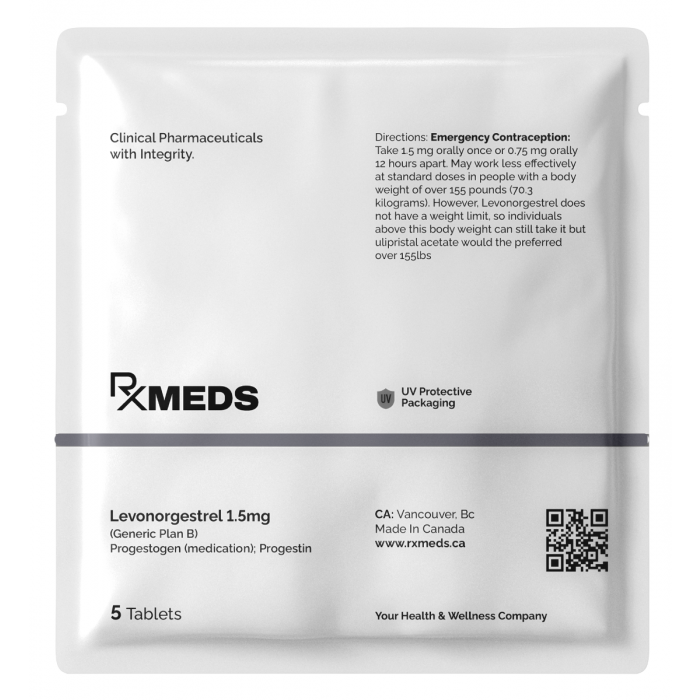Read More
What is Levonorgestrel (Plan B)?
Levonorgestrel (brand name: Plan B) is an emergency contraceptive used to prevent pregnancy after unprotected intercourse or contraceptive failure. It works primarily by inhibiting ovulation or preventing fertilization. Levonorgestrel is most effective when taken as soon as possible, within 72 hours of unprotected sex.
Levonorgestrel is available over-the-counter in most countries and comes in a single-dose tablet form.
- Generic name: levonorgestrel
- Brand names: Plan B One-Step, Take Action, My Way
- Drug classes: Progestins, emergency contraceptives
Warnings
- Levonorgestrel is not intended for regular contraceptive use and should only be used as an emergency option.
- It is not effective if pregnancy has already occurred and will not terminate an existing pregnancy.
- Consult your healthcare provider if you have unexplained vaginal bleeding or are unsure about your pregnancy status.
- Levonorgestrel may be less effective in individuals with a higher body mass index (BMI); consult your doctor for alternative options if needed.
Before Using This Product
- Do not use levonorgestrel if you are allergic to it or any of its components.
- Inform your healthcare provider if you have a history of ectopic pregnancy or severe liver disease.
- Discuss any medications you are currently taking, as some drugs (e.g., rifampin, St. John’s wort) may reduce the effectiveness of levonorgestrel.
How Should I Take Levonorgestrel (Plan B)?
- Dosage: Take one 1.5 mg tablet of levonorgestrel as soon as possible within 72 hours of unprotected intercourse.
- With or Without Food: Levonorgestrel can be taken with or without food.
- Do Not Delay: The sooner the tablet is taken, the more effective it is in preventing pregnancy.
What Happens If I Miss a Dose?
- Levonorgestrel is taken as a single dose, so missing a dose is unlikely.
What Happens If I Overdose?
- Symptoms of overdose may include nausea or vomiting, but serious complications are rare.
- Seek medical advice if you suspect an overdose or experience severe symptoms.
What to Avoid
- Avoid using levonorgestrel as a regular form of contraception, as it is not designed for frequent use.
- Avoid alcohol or substances that may interfere with your ability to take the medication promptly.
- Avoid delaying the dose, as effectiveness decreases with time.
Levonorgestrel Side Effects
Common side effects may include:
- Nausea
- Fatigue
- Headache
- Abdominal pain
- Changes in menstrual cycle
Seek immediate medical attention if you experience severe or unusual symptoms, such as:
- Severe abdominal pain (may indicate ectopic pregnancy)
- Heavy or prolonged vaginal bleeding
- Signs of an allergic reaction, such as swelling of the face, lips, or tongue
 |
|
